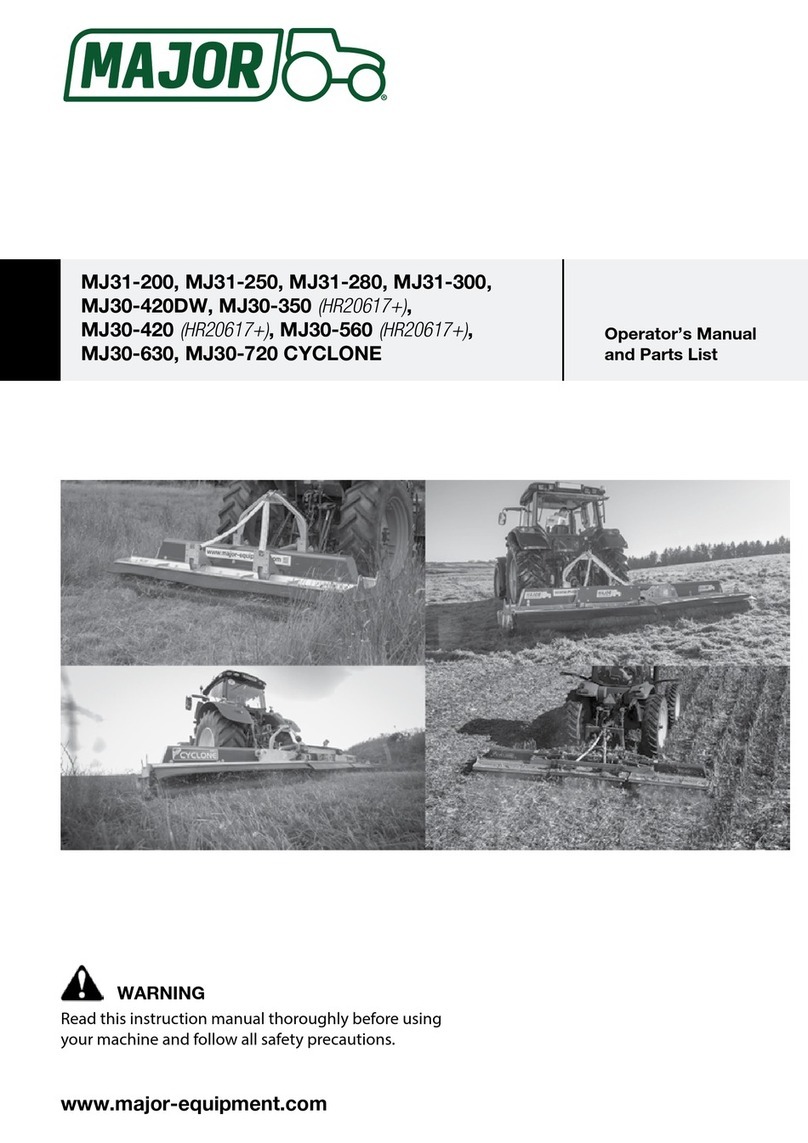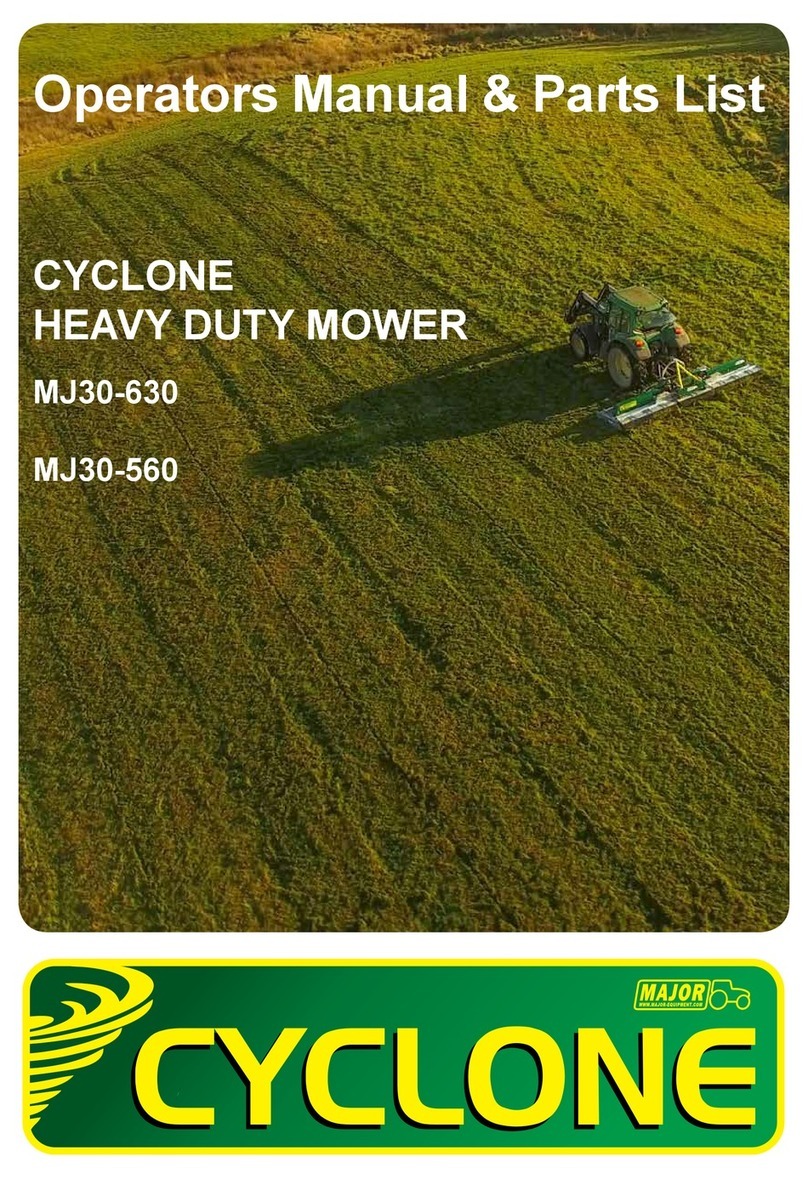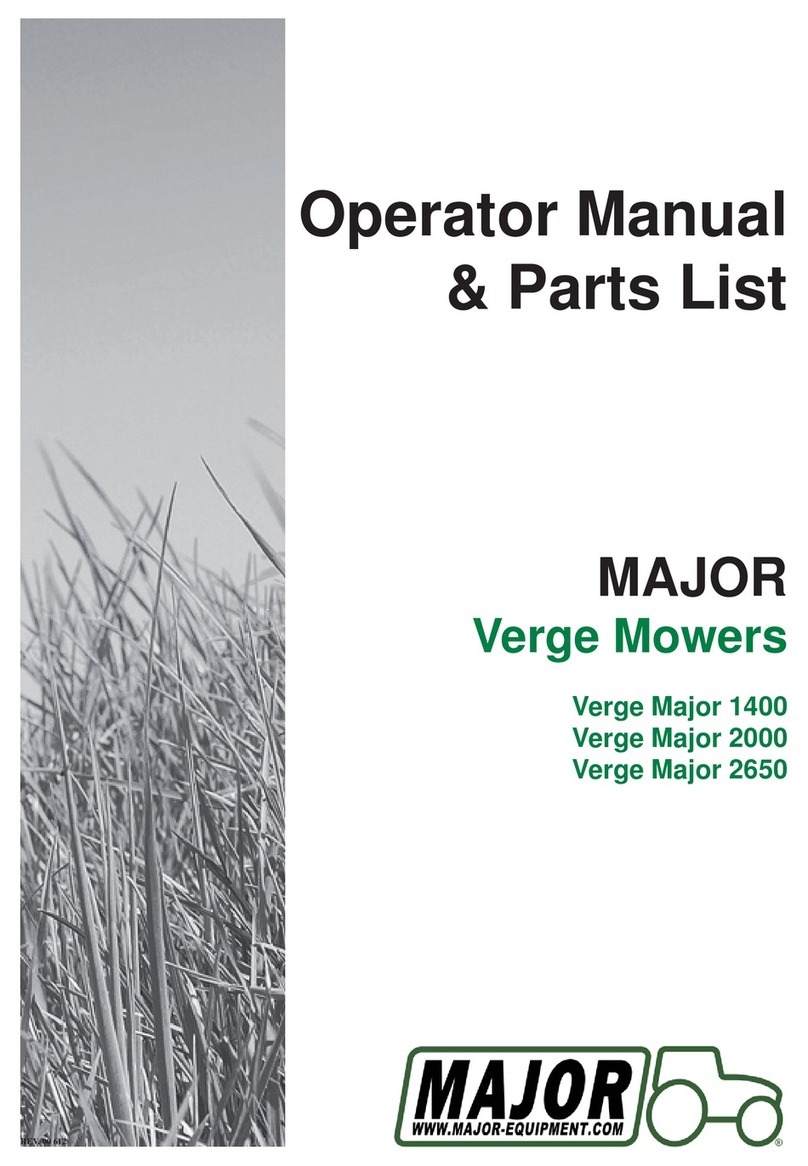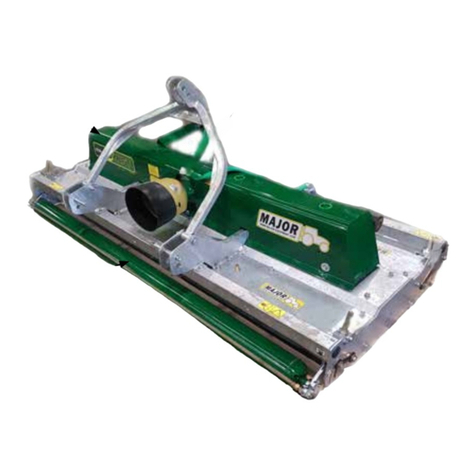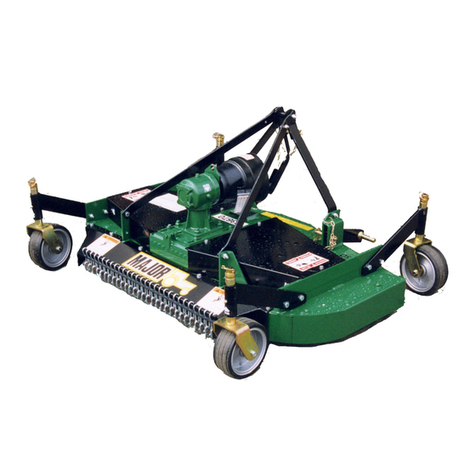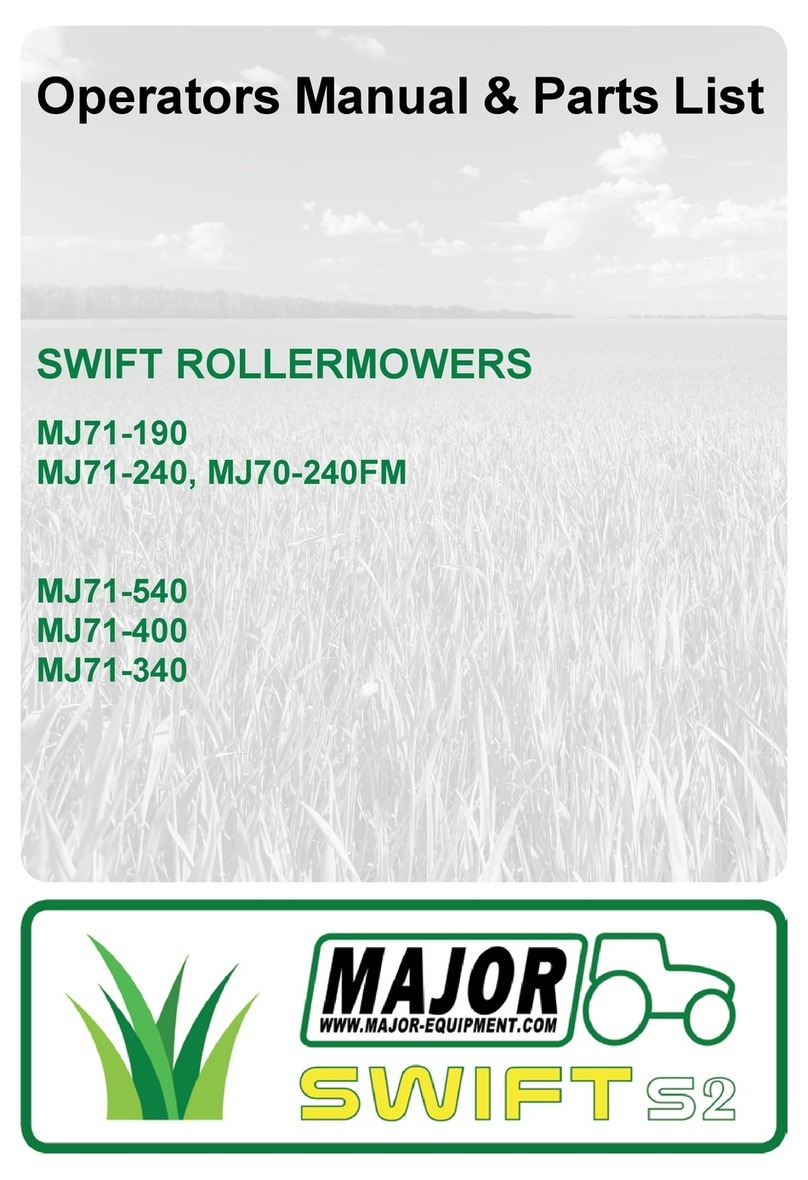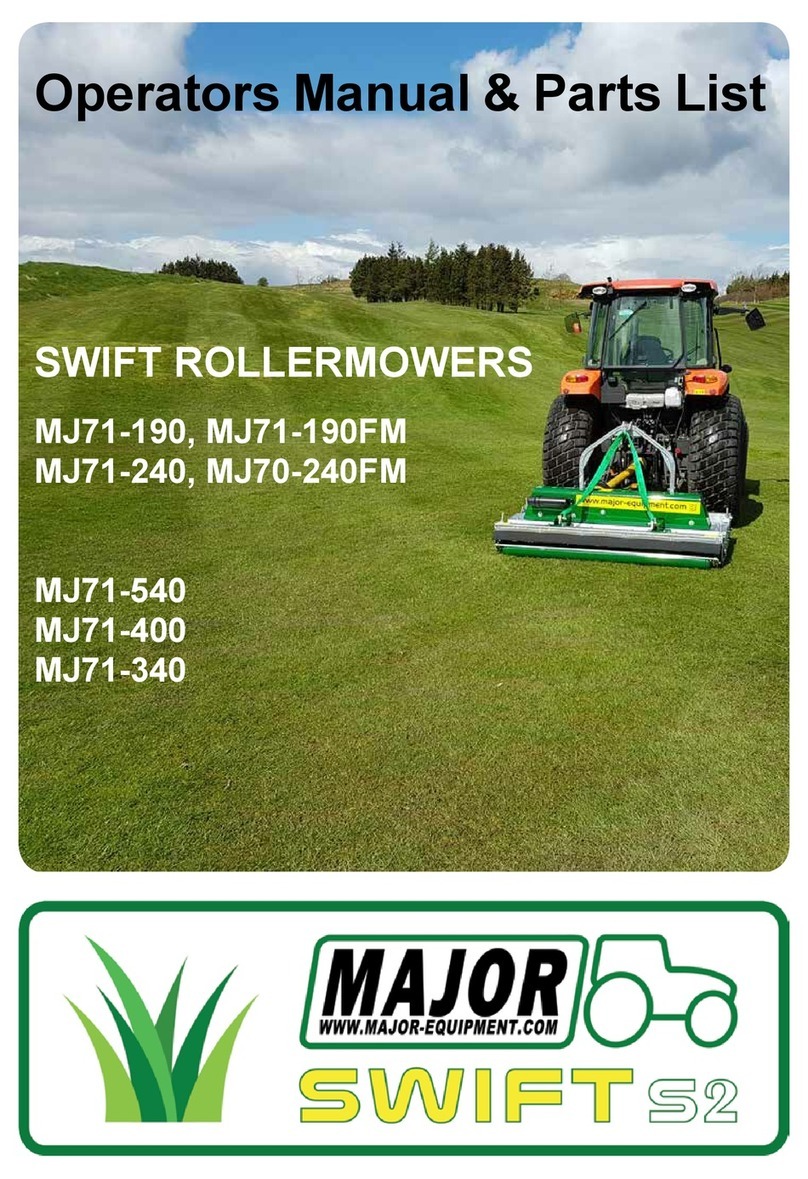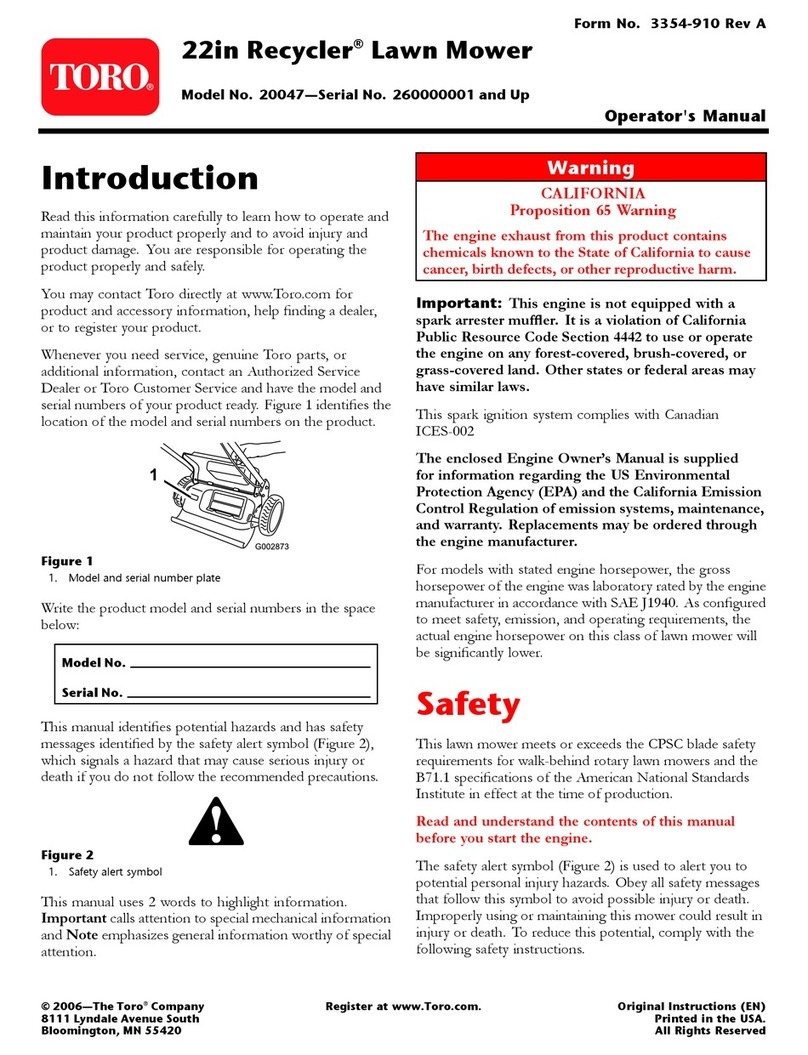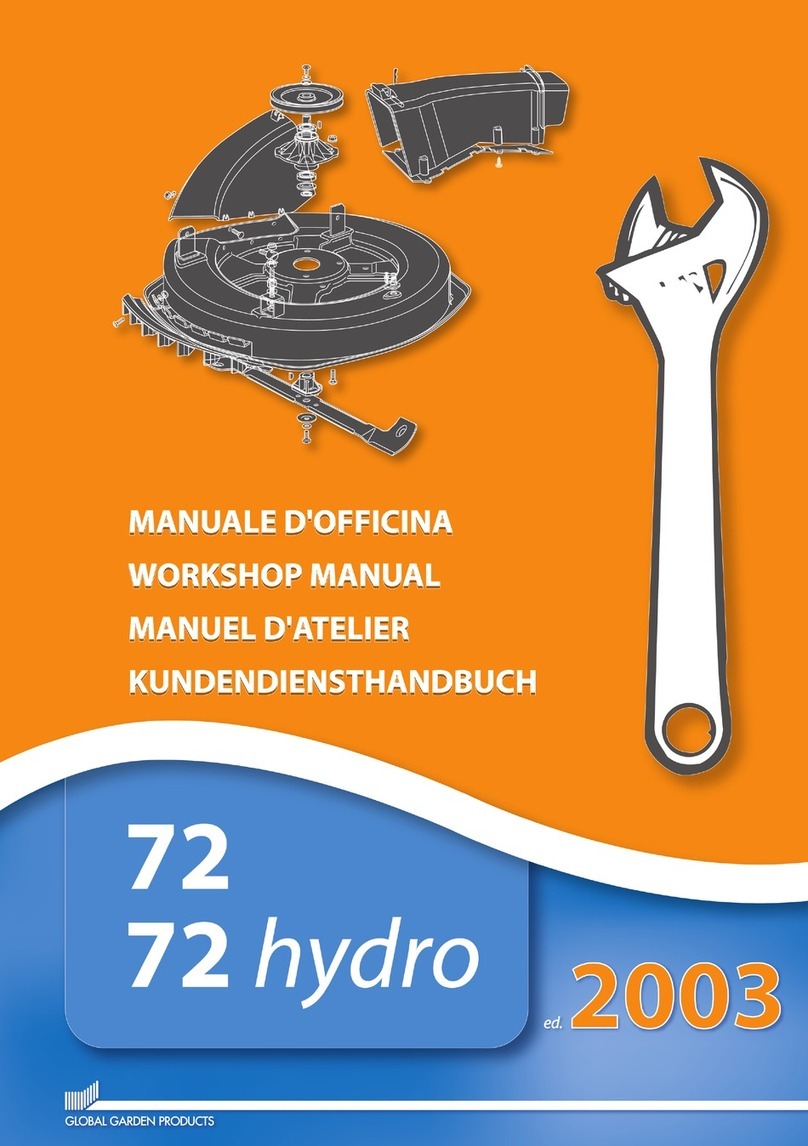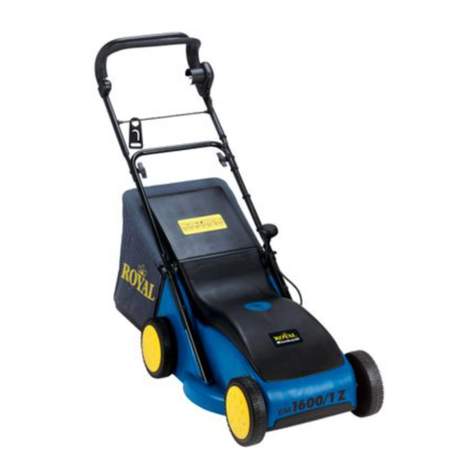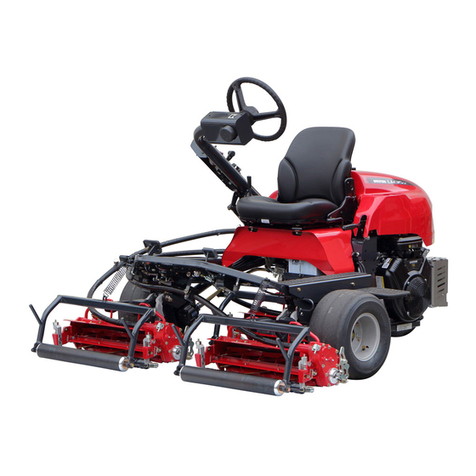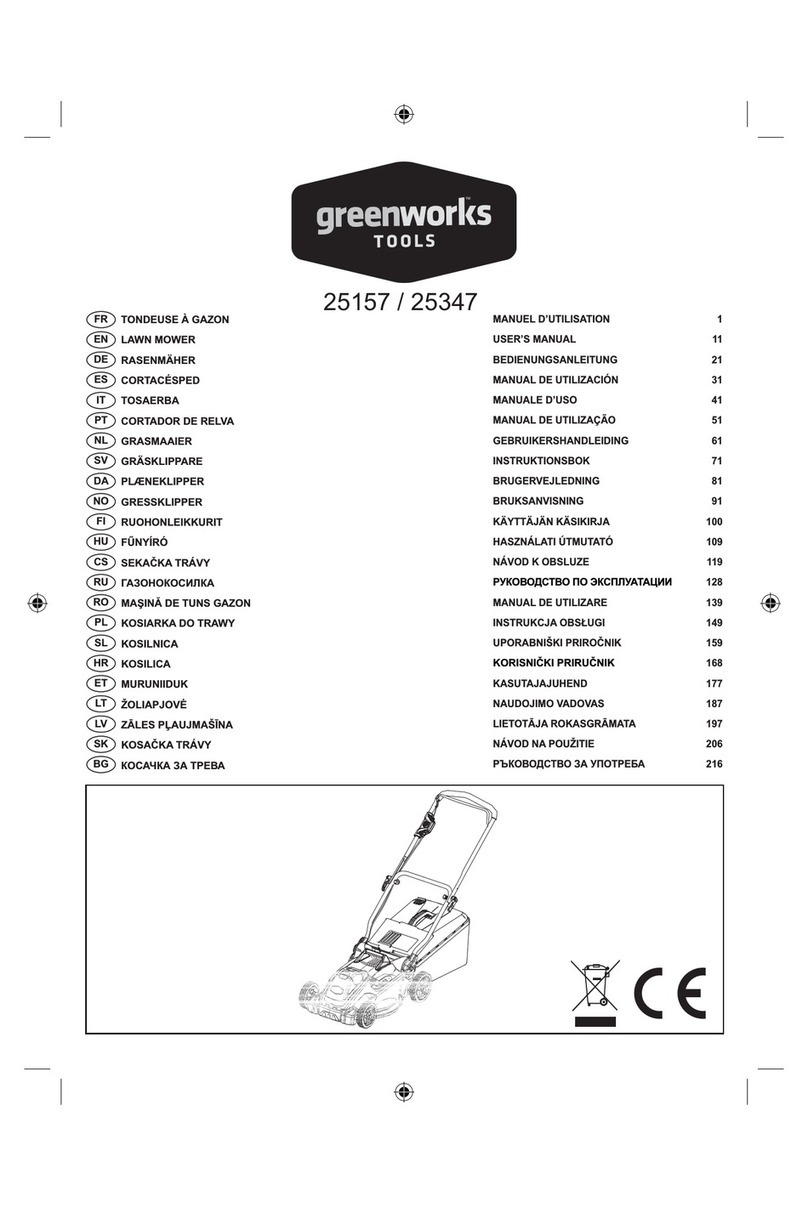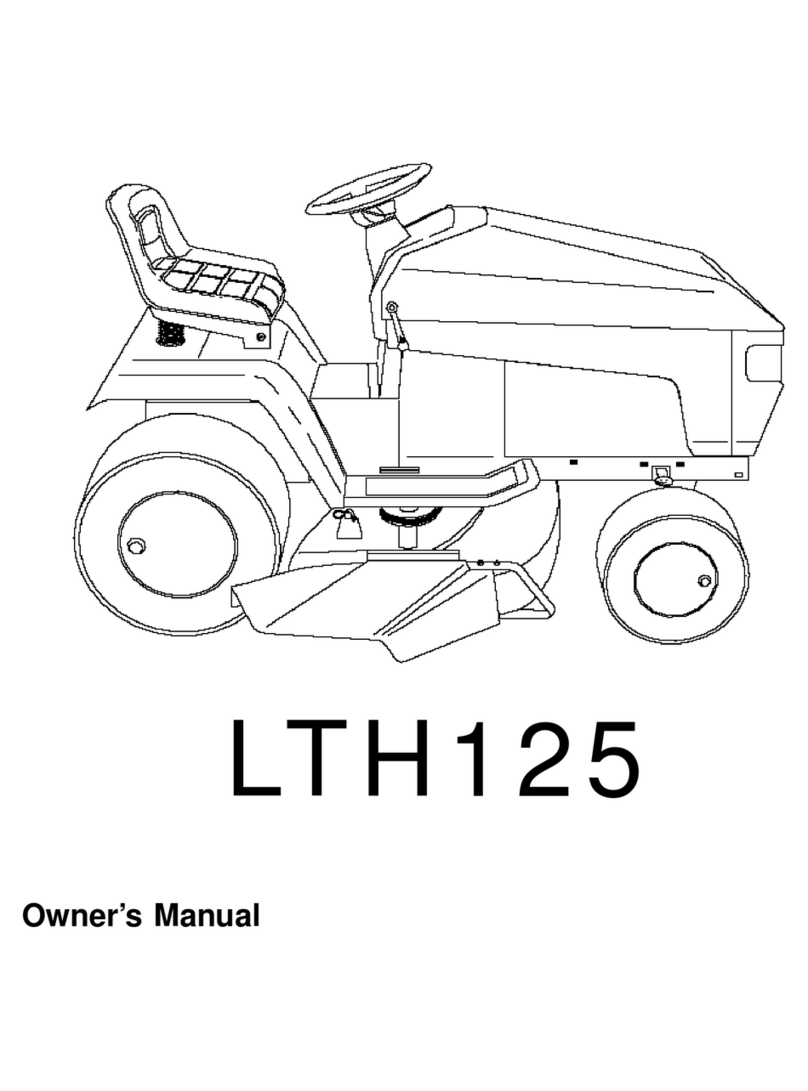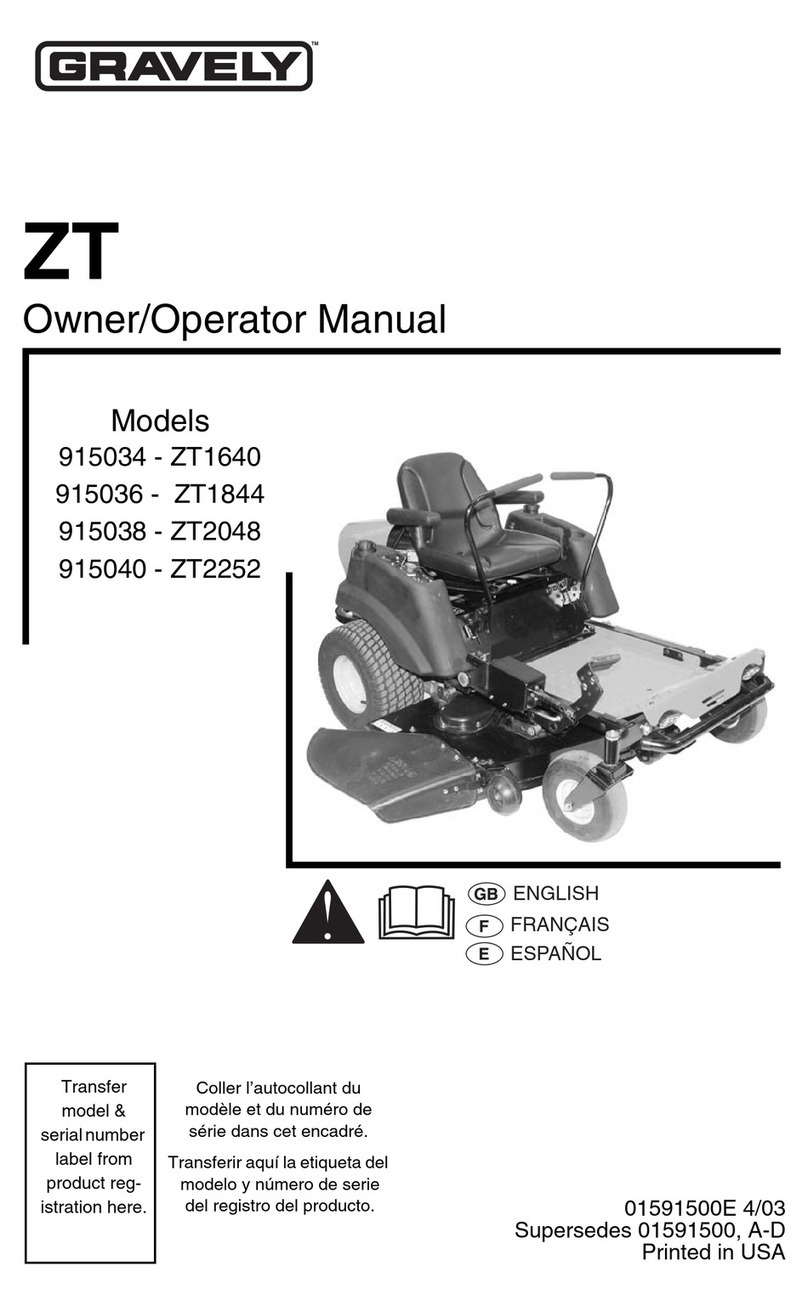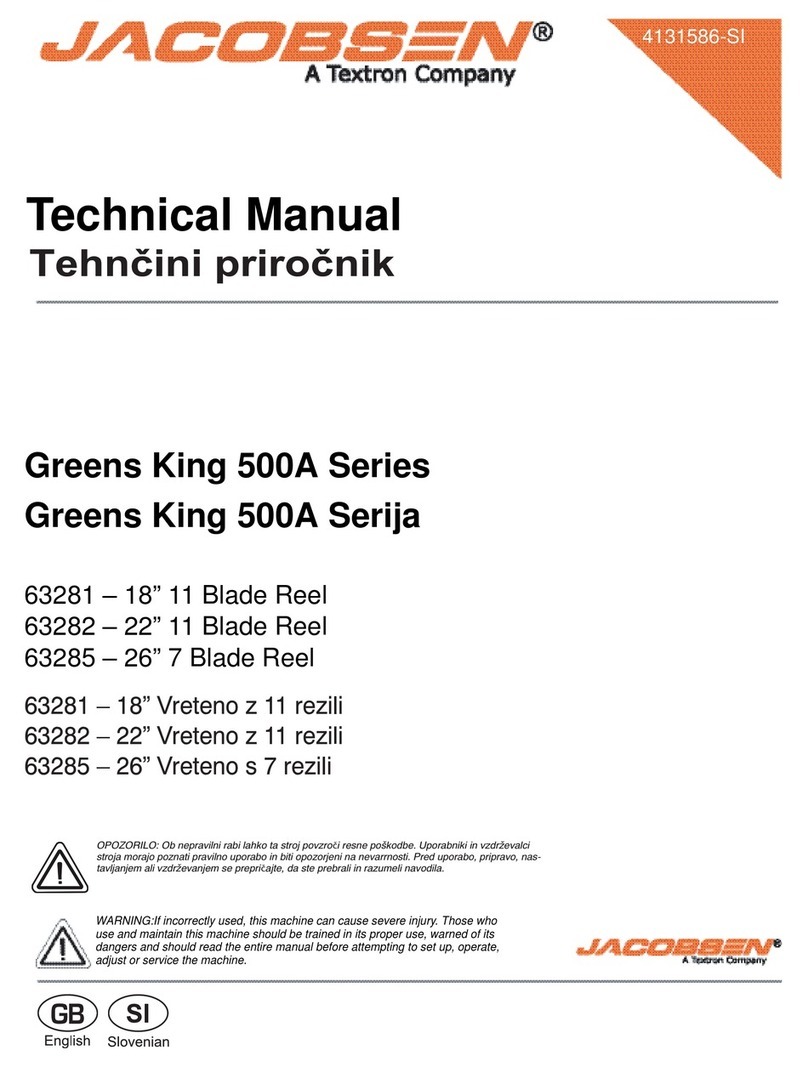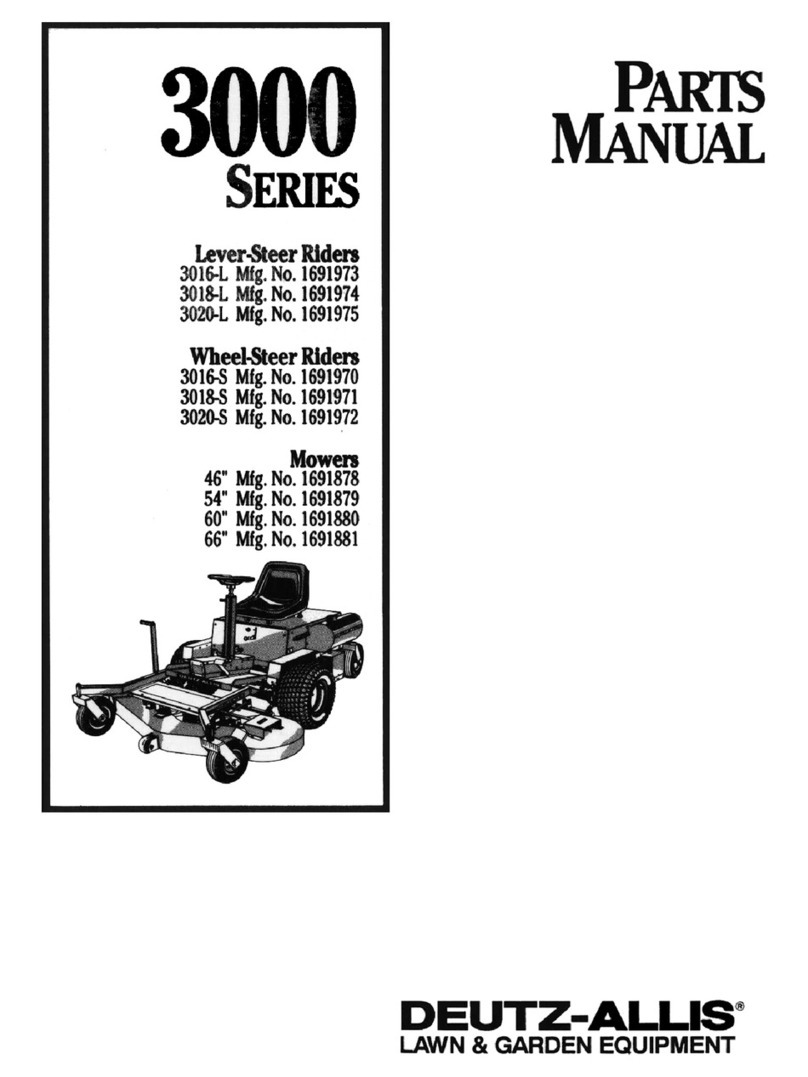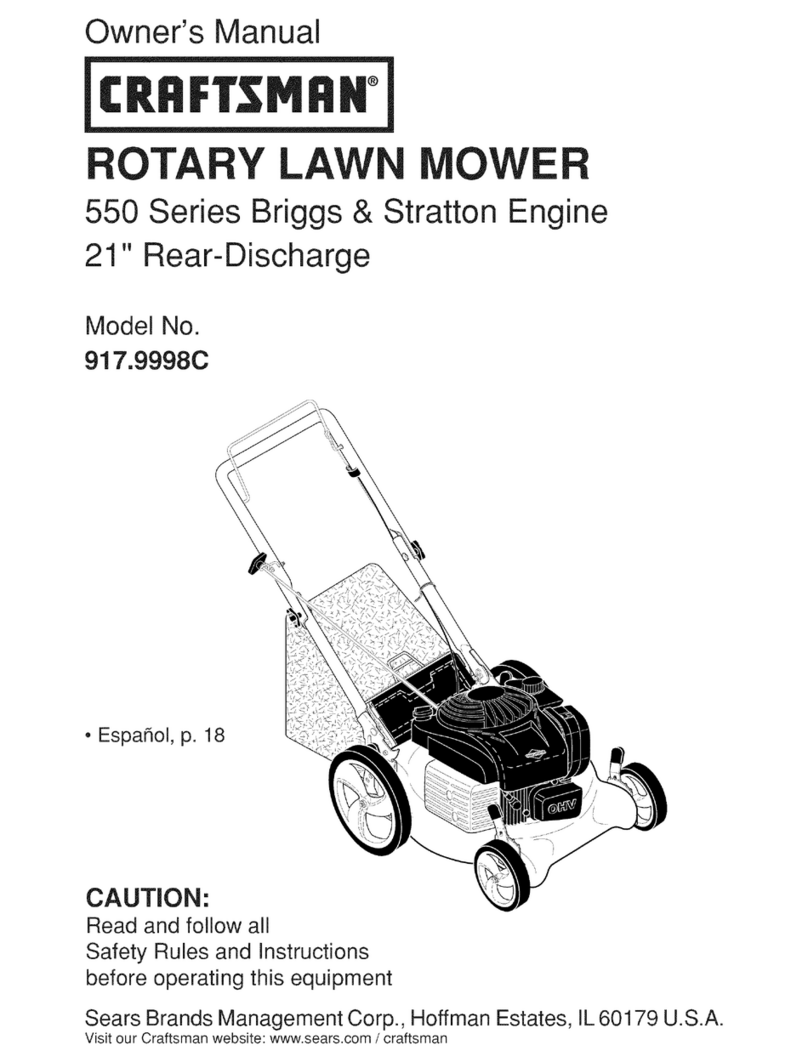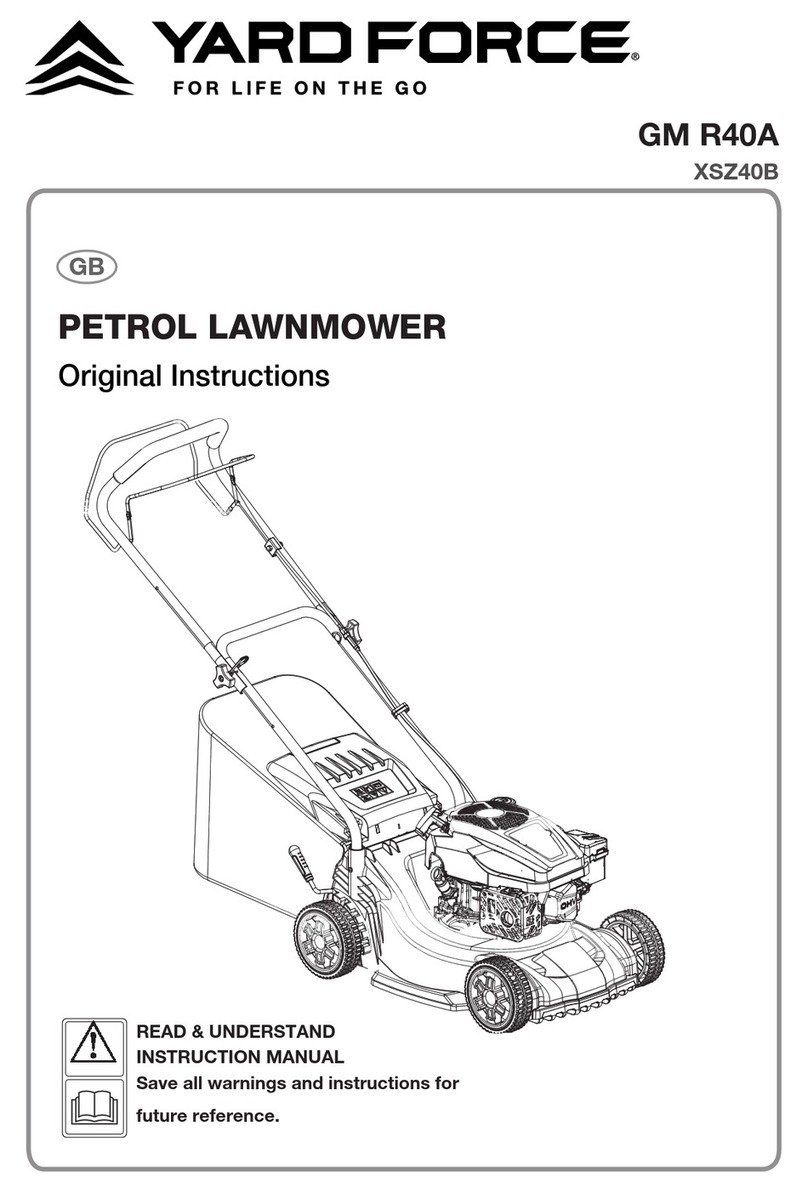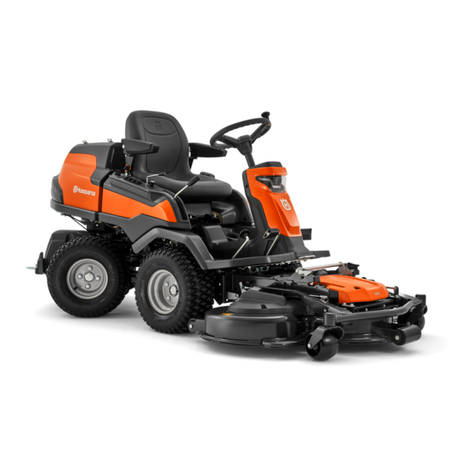
www.major-equipment.com 3
Free-wheeling parts Hazard
The heavier a revolving part is, the longer it will continue to rotate after power is shut o. This characteristic is called
‘free-wheeling.’ Blades, and various other components, drive shafts etc., will continue to move after power is shut o -
often for several minutes. Injuries occur when:
• Operators shut o equipment, and attempt to clean or adjust a machine before components have completely stopped
moving.
• Shear bolt protection device in PTO shaft shears & the mowing parts are still spinning but the primary PTO shaft is
stationary. Operator awareness is the key to safety around freewheeling parts. Never raise the machine while the
blades are still rotating.
Thrown objects Hazard
Machines throw material as a natural part of doing their job. Foreign objects, such as stones, sticks and other debris,
may be taken into this equipment and expelled at tremendous speed. These objects are contained by the sides of the
machine and by the rear/front rollers / guards / chain guards / rubber skirts depending on model of your machine.
Ensure bystanders are clear from the machine & cannot be hit with debris expelled from the machine. Bystanders or
animals in the path of thrown objects could be seriously injured. Never operate machine with decks raised from the
ground as this makes the front/rear protection redundant.
Hydraulic Hazard (if applicable)
Hydraulic systems store considerable energy. Careless servicing, adjustment, or replacement of parts can result in
serious injury. High pressure blasts of hydraulic oil can injure eyes or other body parts. The following precautions are
crucial:
• Make certain the hydraulic pump is turned o.
• Lower attached equipment to the ground.
• Conrm that load pressure is o the system.
A pinhole leak in an hydraulic hose is a serious hazard. A leak may not be visible, and the only sign may be a few drops
of uid. Never inspect hydraulic hoses with your hands, because a ne jet of hydraulic uid can pierce the skin.
Slips, Trips and Falls Hazard
Slips and falls often result from:
1. Slippery footing on the ground
2. Cluttered steps and work platforms.
The potential for slips and falls can be greatly reduced by using good judgement and practicing good housekeeping on
and around equipment.
Noise Hazard
Please note that the machine is normally used outdoors and that the position of the operator is seated in the driving seat
of the tractor. It is advisable to consult the prescriptions listed in tractor operator and maintenance manuals.
The acoustic pressure at a distance of 2.6m from the centre of the machine and at a height of 2.0m, with the implement
operating in a no load condition can reach 90 dBA. In a loaded condition & a PTO rate of 540 (1000) RPM the value can
reach 97dBA. Higher rate of PTO input will result in higher noise levels. Always wear hearing protection.
Operating Safely
This MAJOR machine is designed to operate at a PTO rate which is stated in the Product Specications part of this
booklet. Ensure tractor PTO output is set at a correct RPM rate. This MAJOR machine must only be used for purposes
outlined in the Intended Use section of this booklet. All other use is strictly prohibited.
Users should become thoroughly familiar with the contents of this manual before using, servicing and
mounting the implement to the tractor and all other pertinent operations. Never wear jewellery, loose clothing
such as ties, scarves, belts, unbuttoned jackets or dungarees with open zips which could become caught up
in moving parts.
Always wear approved garments complying with accident prevention provisions such as non-slip shoes, ear
mus, goggles and gauntlets. Wear a jacket with reecting stickers if the implement is used near public
highways.
Consult your retailer, the Labour Health Service or your nearest equivalent authority for the information about
the current safety provisions and specic regulations with in order to ensure personal safety.
ALWAYS DISENGAGE PTO, SWITCH OFF THE TRACTOR ENGINE AND ENGAGE THE PARKING BRAKE
BEFORE MAKING ADJUSTMENT TO THE MACHINE.
